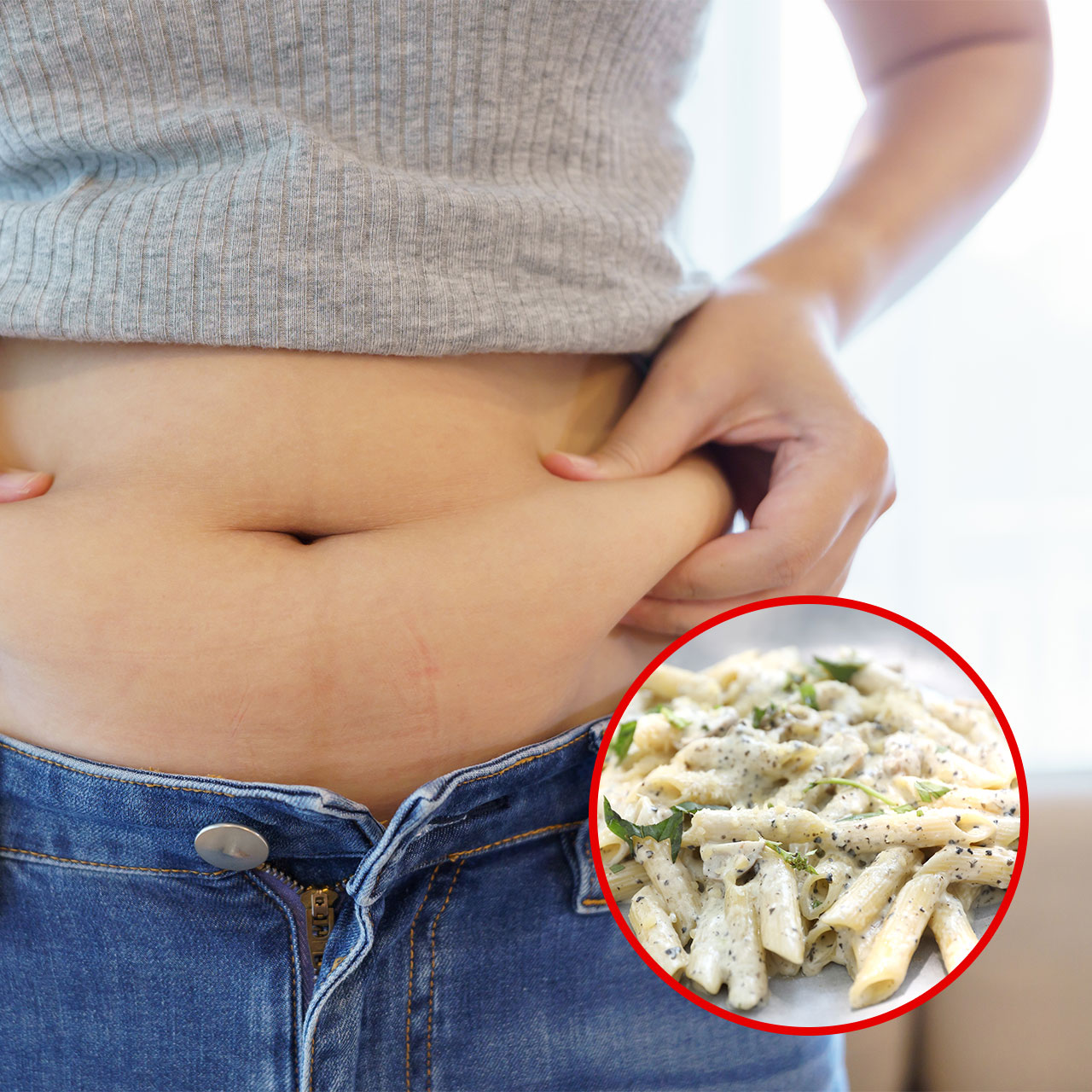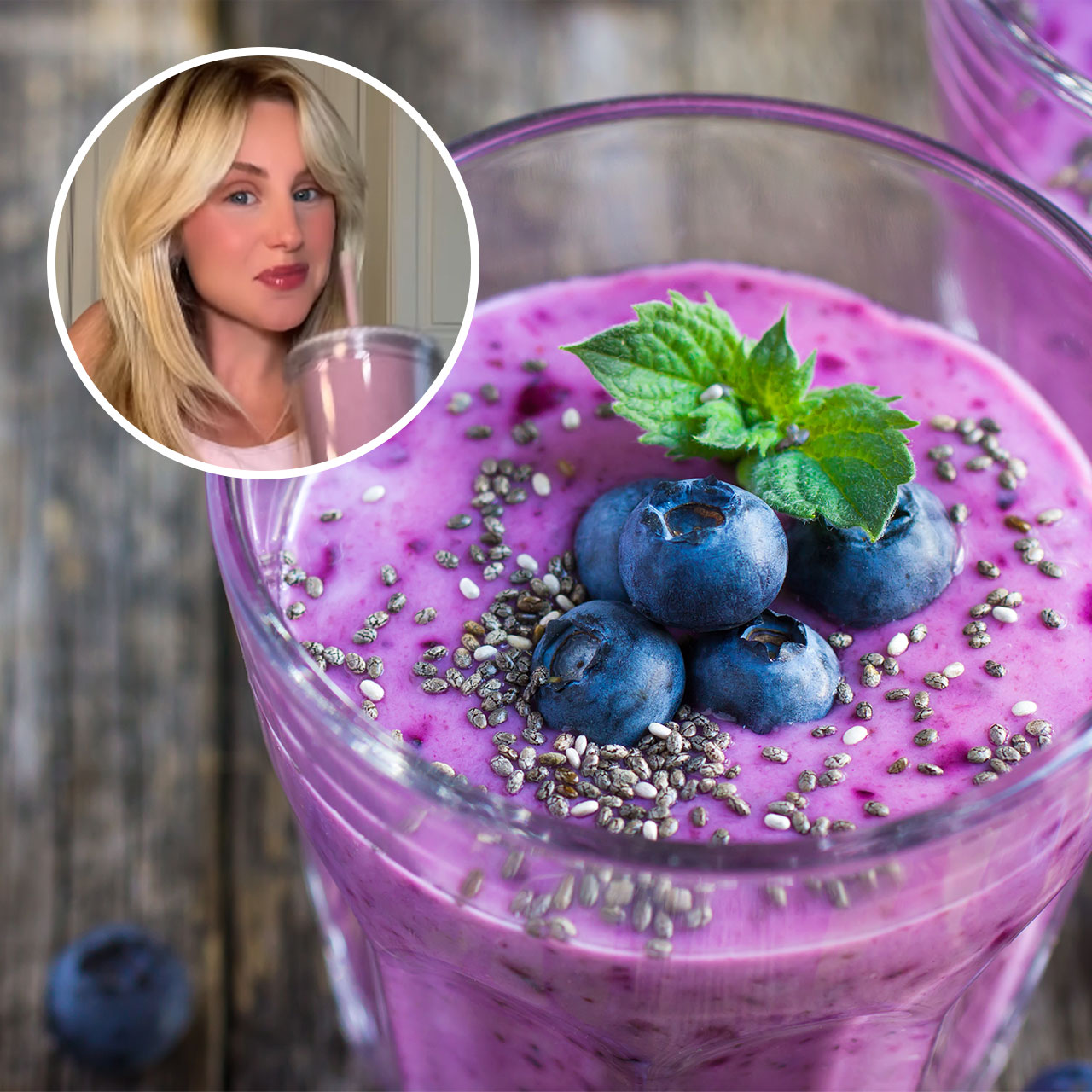In our quest for healthier choices, we often turn to beverages marketed as ‘healthy,’ only to find that they may not be as beneficial as advertised. Surprisingly, many seemingly nutritious drinks can actually contribute to inflammation and weight gain. From smoothies to drinks labeled as diet-friendly, the options are endless, yet not all are created equal.
We spoke with Kimberly Booker, RD; Lisa Andrews, registered dietitian nutritionist at Health Insiders; and Joanna Wen, certified health coach and founder of Spices & Greens, to learn about four seemingly healthy beverages that can actually make weight loss harder and lead to more inflammation. They revealed that fruit juice, smoothies, protein drinks, and diet drinks are some of the top culprits. Read on to find out why.


1. Fruit Juice
Fruit juice, often perceived as a healthful beverage, can paradoxically contribute to inflammation and weight gain due to its concentrated sugar content. While natural fruit sugars are accompanied by beneficial nutrients when consumed in whole fruits, the juicing process extracts the liquid, leaving behind concentrated sugars without the fiber and other compounds that help mitigate their impact.
"Commercial fruit juices often have added sugars and lack the fiber present in whole fruits. Consuming fruit juice without the fiber can lead to a rapid increase in blood sugar levels, promoting inflammation. The body doesn't register liquid calories as well as solid ones, leading to overconsumption and potential weight gain," Booker says. She also adds, "The absence of fiber in fruit juice can also impact satiety, making it easier to consume more calories from other sources."

2. Smoothies
While smoothies offer a convenient way to incorporate fruits, vegetables, and other healthful ingredients into one's diet, the potential pitfall lies in portion control and ingredient choices. Some commercially available smoothies or homemade varieties can pack a substantial calorie punch, especially when laden with high-calorie ingredients like sweetened yogurt, excessive amounts of fruits, or added sugars. Moreover, the liquid nature of smoothies may not elicit the same feelings of fullness as consuming solid foods, potentially leading to overconsumption.
"Another unexpected ‘healthy’ offender is smoothies, especially those made with high-calorie ingredients like fruit juices, sweeteners, and excessive amounts of nut butter or yogurt. While they may seem like a good choice, these calorie-dense drinks can easily contribute to weight gain and inflammation if not consumed mindfully," Wen notes.

3. Protein Drinks
Although protein is essential for building and repairing tissues, some commercially available protein drinks may carry hidden calories and sugars. Consuming these beverages in excess can contribute to a surplus of calories, hindering weight loss efforts. Additionally, relying solely on protein drinks as meal replacements may lack the diverse range of nutrients found in whole foods.
Andrews elaborates further and says, "Protein drinks can be high in calories or sugar depending on the brand, check the label," and consider other healthier alternatives made from whole foods that are protein-packed.

4. Diet Drinks
Diet drinks may seem like a sensible choice for those watching their calorie intake, but the artificial sweeteners present in diet drinks can disrupt the body's natural response to sugar. These sweeteners may influence appetite and cravings, potentially leading individuals to consume more calories from other sources.
These diet drinks contain artificial sweeteners such as aspartame, saccharin, or sucralose, which have been linked to increased inflammation in some studies. These sweeteners may disrupt gut bacteria balance, leading to gut inflammation and a cascade of inflammatory responses throughout the body.
"While they are better than their sugar-laden counterparts, studies (like this) indicate that drinks containing artificial sweeteners are also associated with obesity," Andrews highlights.


























